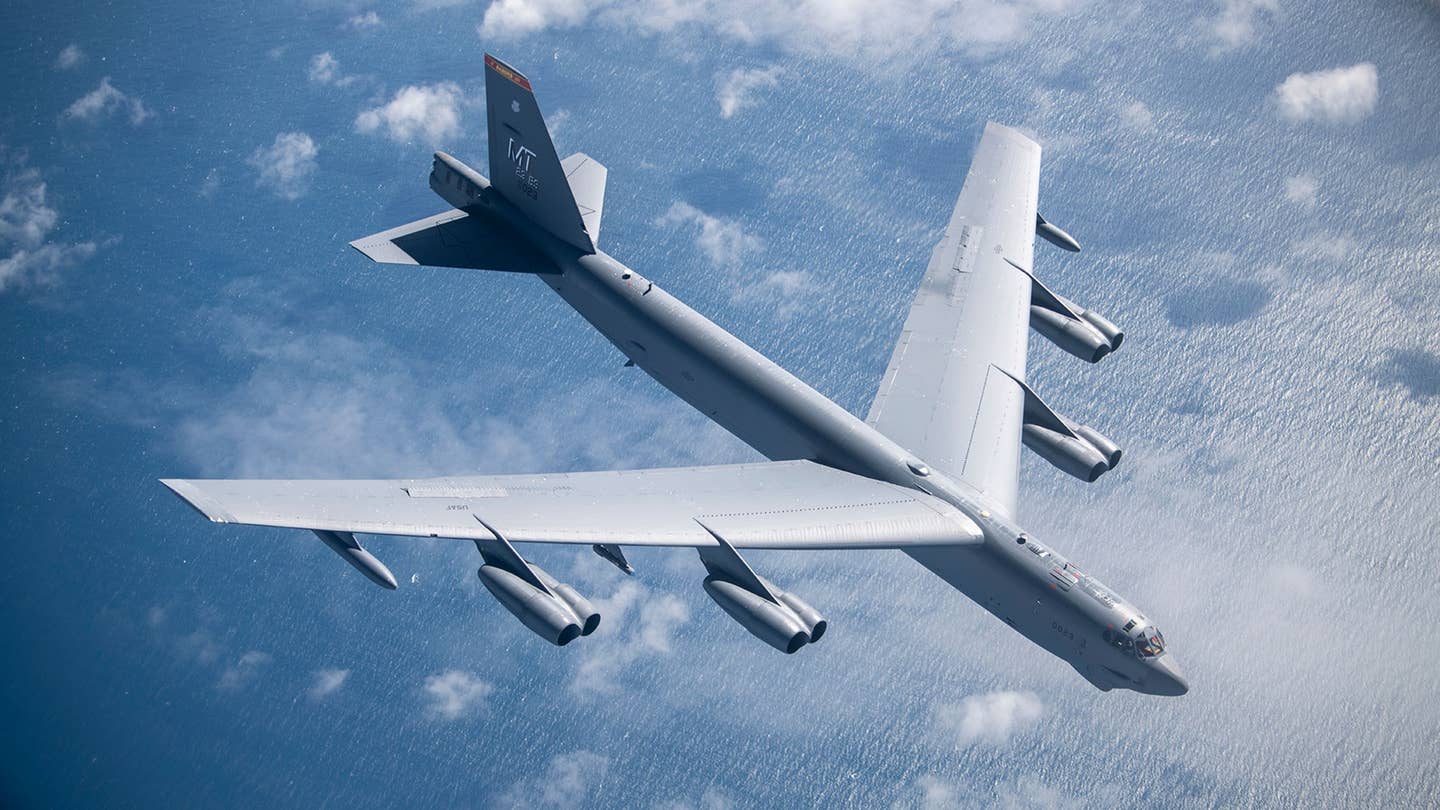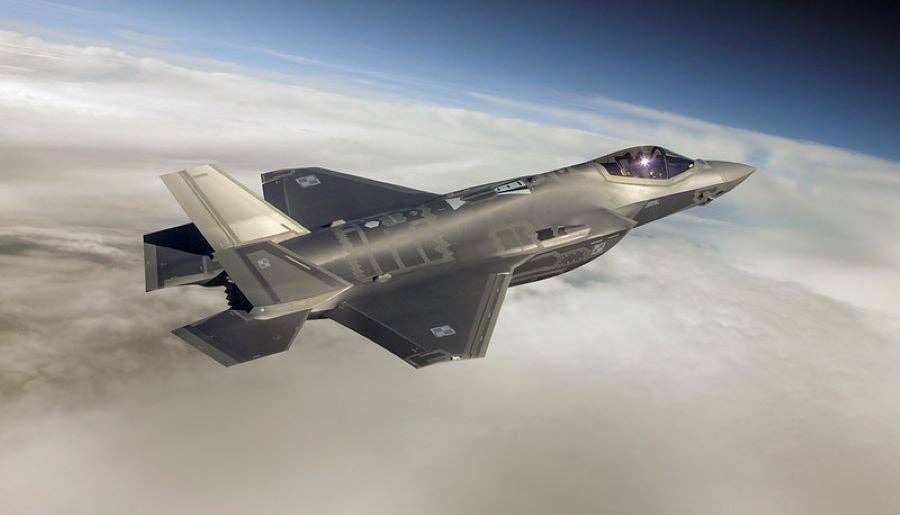Boeing, Air Force Tap Collins to Supply New Electric Power Generation System for B-52
New system will help the Air Force achieve a 30 percent improvement in fuel efficiency for the iconic bomber.

As of June 2019, the U.S. Air Force has 76 B-52s in its inventory. [Courtesy: US Air Force]
Boeing (NYSE:BA), which manufactures the long-range, subsonic, strategic B-52 bomber, has selected Collins Aerospace, a Raytheon Technologies (NYSE:RTX) company, to upgrade the aircraft with a new electric power generation system (EPGS).
“Our new EPGS for the B-52 will leverage proven commercial technology to support greener aircraft operation while also paving the way for future platform enhancements that will extend the operational service life of the Stratofortress for decades to come,” Stan Kottke, vice president of electric power systems for Collins Aerospace, said in a statement.
As of June 2019, the U.S. Air Force has 76 B-52s in its inventory. By making the switch to electric powertrains, the Air Force aims to reduce its carbon footprint and preserve natural resources. The EPGS will help the Air Force achieve a 30 percent improvement in fuel efficiency for the B-52, according to a Collins news release.
The new EPGS will include eight generators per aircraft, a lucrative deal for the company considering the Air Force’s fleet size. When installed, the redundant system will provide enough electric power to support electronic upgrades such as radar, avionics, and mission systems.
Collins will begin working on the new program at its Electric Power Systems Center of Excellence in Rockford, Illinois, and plans to hire more than 60 people to support the program. The Rockford location is also home to the Collins’ Ram Air Turbine wind tunnel test facility, expected to be operational in summer 2022.
Wheels and Brakes
It’s not all powerplants. Collins was previously selected to upgrade the B-52’s wheel and carbon brakes in April 2021. Using its proprietary Duracarb carbon heat sink material, Collins says the upgrade will allow the B-52 to conduct more landings between overhauls, which will save money.
In that deal, Ajay Mahajan, vice president of landing systems for Collins Aerospace, celebrated the enduring partnership between Collins and the B-52.
“Since the first Stratofortress variant took flight in the 1950s, Collins Aerospace has been onboard,” Mahajan said.
In fact, Collins has supplied more wheels and brakes for the Air Force across its F-15, F-16, C-5, C-130, and Global Hawk fleets than any other provider, and is one of the leading providers for C-130 brakes worldwide. It now hopes to work with the Air Force and Boeing to provide additional upgrade options to modernize the B-52, such as including communications and avionics upgrades.
News of the deal was a good sign for Raytheon as its share price climbed from $89 on January 11 to as high as $91.52 a day later. The news was a double benefit for Boeing, when paired with its announcement of fourth-quarter deliveries. As of Wednesday afternoon, Boeing’s share price is the highest it has been in a month at $218, a 10 percent bump in the past month.
Raytheon is scheduled to report its fourth-quarter and full-year financials on Tuesday, January 25.

Subscribe to Our Newsletter
Get the latest FLYING stories delivered directly to your inbox






